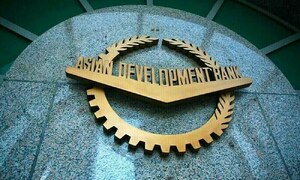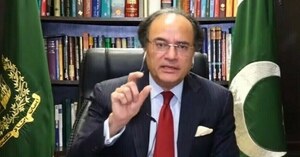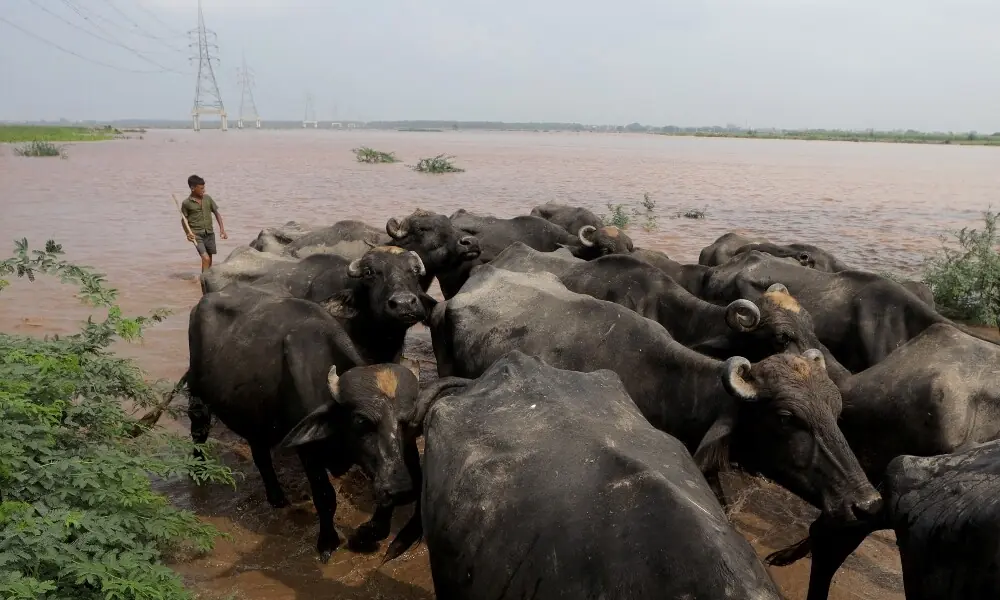Prime Minister Shaukat Aziz has said Pakistan adheres to a doctrine of minimum nuclear deterrence as a guarantee of its security and has a strong command and control system to protect the strategic assets. "Pakistan's nuclear capability should be viewed in the context of the strategic co-relation of forces in South Asia. Pakistan does not threaten any country nor does it have ambitions for regional domination," he said in his address on Thursday to the Middle East Technical University on "Pakistan - promoting a regiona1 peace and development in Asia."
Prime Minister Aziz in his wide-ranging speech explained Pakistan's position on major regional and international issues to the distinguished audience of one of the most prestigious academic institutions in the world.
In his comprehensive speech he covered the situation in South Asia, Pakistan-India peace dialogue, Afghanistan, Iraq, Middle East crisis, proposed UN reforms, besides highlighting Pakistan's role in promoting regional peace and development.
Prime Minister Aziz said Pakistan's nuclear and missile capabilities have been developed purely for self-defence and provide a credible deterrence to ensure its security.
The nuclear test by Pakistan, in response to that of India in 1998, had proved to be a critical factor for the establishment of security and stability in South Asia, he added. He recalled the events of 2001-2002 when the nuclear deterrence prevented the outbreak of hostilities at the time when India had deployed more than a million troops on the country's borders.
He said, being a responsible nuclear power, Pakistan has proposed a Strategic Restraint Regime that seeks to avoid a strategic and conventional arms race with India.
Prime Minister Aziz reiterated Pakistan's opposition to nuclear proliferation and said the country has developed a strong command and control system to protect its strategic assets.
"Moreover, we have engaged with the international export control regime to ensure non-proliferation," he added.
The premier, while highlighting the Pakistan's strategic location, said, 'the country sits at the cross-roads of South, Central and West Asia and provides the shortest access to the sea for the landlocked Central Asia through its ports.'
He also mentioned the upcoming projects, which were being considered for constructing a gas pipeline from Iran and Turkmenistan to Pakistan and may be beyond into India.
Prime Minister Aziz said Pakistan's role as a critical factor for promoting such intra-regional co-operation is underscored by the fact that it is the only country, which is a member of both the Economic Co-operation Organisation (ECO) of central Asian states and the South Asian Association for Regional Co-operation (Saarc).
However, he said, to achieve this ambitious goal, enabling environment in the region was a must.
He described dialogue for peaceful settlement of the existing disputes and mechanism to resolve issues on bilateral and multilateral basis as one of the four pillars that he underlined to promote such an enabling environment.
He defined the other three pillars as strategic restraint and avoidance of an arms race in the region, strengthening of regional co-operation and enhancing co-operation between the different sub-regions of Asia, which would enhance security and mutually beneficial co-operation.
Shaukat Aziz also outlined various features of the Pakistan's burgeoning economy, which posted 8.3 percent growth rate in fiscal 2004-05 and was among the five top Asian countries - in terms of growth.
PEACE TALKS: On South Asia and the ongoing peace dialogue with India, the premier underlined the centrality of the Kashmir dispute whose resolution, he added, was must for a durable peace in the region. He said in its relations with India, Pakistan has persisted with its commitment to peaceful resolution of all issues, especially the Kashmir dispute.
The premier said: "Resolution of the longstanding dispute in accordance with the wishes of the Kashmiri people holds the key to peace between Pakistan and India." He called for showing sincerity, courage and flexibility by all to achieve this objective.
"We have already demonstrated our commitment to this approach and we believe that a Kashmir solution must be acceptable to all three parties, Pakistan, India and, especially the Kashmiris," he added.
Turning to other regional and international issues, Prime Minister Aziz traced the events in Afghanistan that adversely affected Pakistan with the inflow of three million Afghan refugees, the infusion of drugs end weapons as well as incursions by extremists and terrorists. Throughout this period, he added, Pakistan respected the sovereignty and territorial integrity of Afghanistan and helped in efforts to restore peace in that country.
After the events of September 11, he added, Pakistan fully supported the Bonn Process and the government of President Hamid Karzai and have acted as a reliable neighbour and trusted partner.
On Iraq he said, the recent elections in the Gulf country holds out the possibility of a return to peace and normalcy in that country.
He reiterated Pakistan's position that fully supports the sovereignty and territorial integrity of Iraq. Prime Minister Aziz hoped that the Iraqi people would be able to overcome the challenges before them without external coercion or interference.
"We would also like to see a greater role by the United Nations in Iraq to help in the political transition, restore peace and ensure reconstruction of the country," he added.
The premier described Palestinian problem a major threat to regional peace and security and said a lasting and durable settlement in the Middle East could only be achieved by the attainment of a homeland by the Palestinian people.
He said the Palestinian President recently visited Pakistan and the government assured him full co-operation and support. "We believe that international community, especially the major power, must extend every effort to help resolve this dispute, which has caused immense human suffering over the last several decades," he added.
TERRORISM: Shaukat Aziz termed the menace of global terrorism a danger to peace and development across the world.
Reiterating Pakistan's firm resolve to fight out the menace, he said the country opposed terrorism in all its forms and manifestation. He referred to the significant contribution Pakistan has made to the war on terrorism, saying its role is now internationally acknowledged. However, at the same time, the premier said Pakistan believed that a lasting solution to the problems of terrorism required elimination of its root causes.
"We need to remove the deprivation, the injustice and the ignorance that germinate the phenomena of terrorism," he added.
Prime Minister Aziz also called on the need to challenge the pernicious notion that Islam breeds extremism and terrorism and that the world was heading towards an inevitable clash of civilisations. "Islam means peace - it is a religion of compassion and tolerance, which preaches harmony and fore-bearance," he added.
BR100
15,085
Increased By
112.5 (0.75%)
BR30
44,012
Increased By
987.7 (2.3%)
KSE100
148,618
Increased By
1274.3 (0.86%)
KSE30
45,248
Increased By
370.7 (0.83%)





















Comments
Comments are closed.